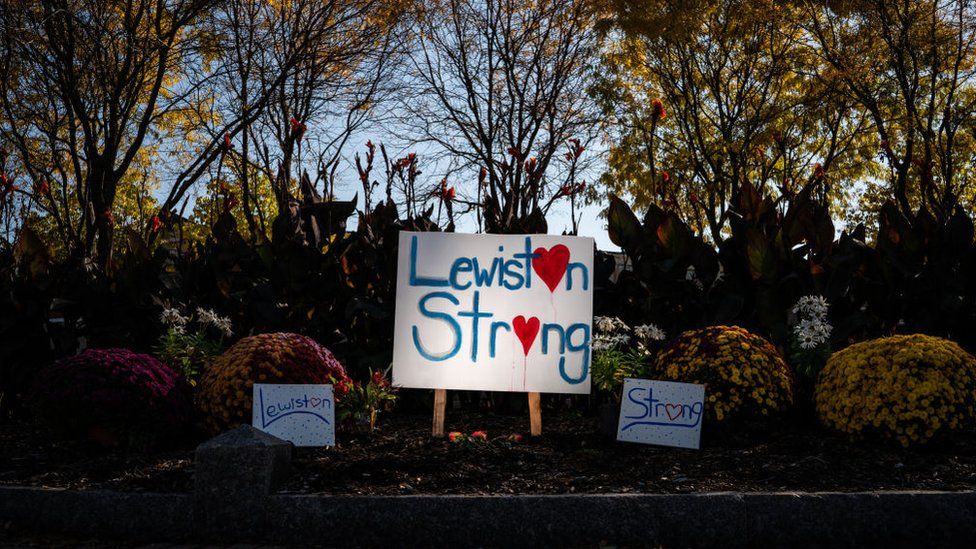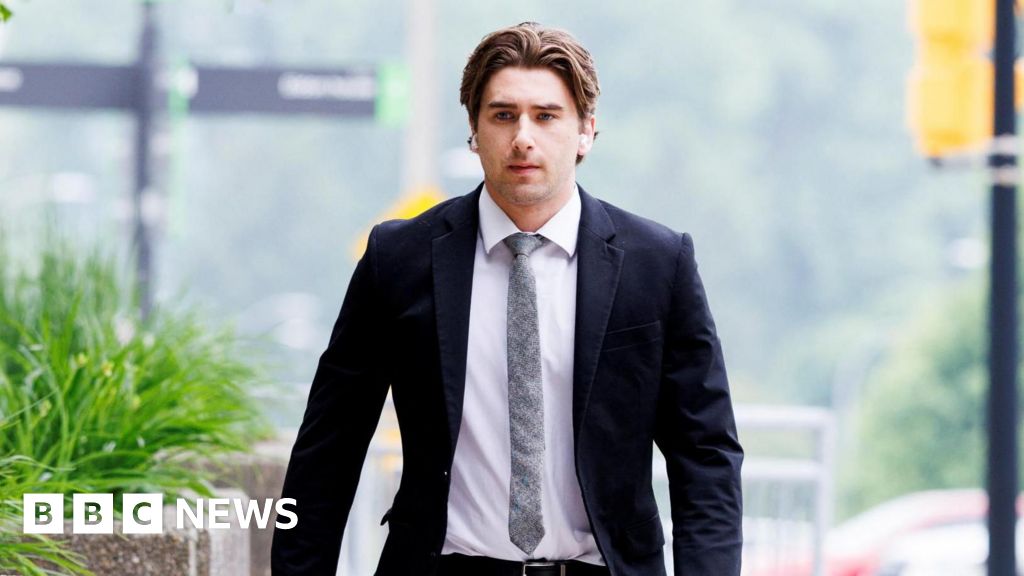ARTICLE AD BOX
 Image source, Getty Images
Image source, Getty Images
By Brandon Drenon
BBC News
A man who shot and killed 18 people in Lewiston, Maine last October may have been suffering from traumatic brain injuries, doctors have said.
The shooting was executed by 40-year-old Robert Card, a US Army reservist and certified firearms instructor.
Card was found dead days after the incident from a self-inflicted gunshot.
Army records showed Card had no combat deployments, but doctors said on Wednesday that he may have suffered brain injuries during military drills.
Card was a "long-time" instructor at an Army hand grenade training range, according to a statement released by the Concussion Legacy Foundation on Wednesday.
During that time he was exposed to "thousands of low-level blasts", the organisation said.
Dr Ann McKee from Boston University's CTE Center, who conducted the study, said in the statement that nerve fibres in Card's brain showed "significant degeneration... inflammation" and "small blood vessel injury".
"While I cannot say with certainty that these pathological findings underlie Mr Card's behavioural changes in the last 10 months of life, based on our previous work, brain injury likely played a role in his symptoms."
Dr McKee did not find evidence of chronic traumatic encephalopathy (CTE) in Card's brain, a degenerative disease affecting people who have suffered repeated concussions and brain injuries.
The Maine Chief Medical Examiner's office requested the post-mortem study of Card's brain after the 25 October incident.
There had been signs that Card was suffering psychologically before the deadliest mass shooting in Maine's history.
Card was in hospitalised and ordered to undergo psychiatric evaluation just three months before he entered a bowling alley and restaurant in Lewiston, killing 18 people and injuring 13 others.
A federal law enforcement source told CNN in October that the Army gave Card a "command referral" to seek treatment after he told military personnel that he had been "hearing voices" and had thoughts about "hurting other soldiers".
Card was deemed by the US Army to be behaving too erratically to be allowed handle a weapon.
Army officials will testify on Thursday before a special commission investigating the deadliest mass shooting in Maine history, according to the Associated Press.
In the statement released by the Concussion Legacy Foundation, Card's family said: "We want to begin by saying how deeply sorry and heartbroken we are for all the victims, survivors, and their loved ones, and to everyone in Maine and beyond who was affected and traumatized by this tragedy.
"We are hurting for you and with you."

 1 year ago
134
1 year ago
134








 English (US) ·
English (US) ·